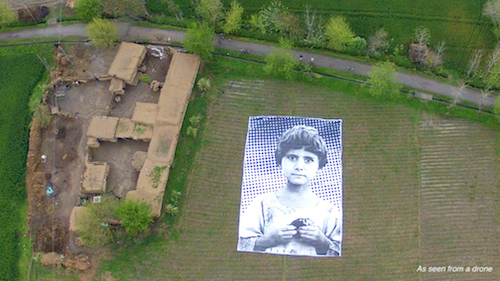“Live all you can,” Henry James writes in The Ambassadors; “it’s a mistake not to.” He speaks through Lambert Strether, the 55 year-old POV character whose generous perceptions and sense of regret make him a stand-in for James himself. Strether experiences Paris as a reminder that he has not lived all he could. He urges young Bilham to cherish “the illusion of freedom,” to indulge the feeling of guiding his own life—not in any particular way but vigorously, fervently. “Live!” he cries, implying that he has not, and that we are in danger of making the same mistake. But of course we wind up living anyway.
Category Archives: Existential Dilemmas
Is it wrong to be racist or to talk racist?

Donald Sterling, the false eyes he uses to distract predators, and his false friend to distract death
New York Times ethicist Chuck Klosterman recently fielded a question about why, exactly, we were so pleased to see Donald Sterling stripped of his franchise rights by the NBA. Is it because he thinks in a racist manner, as his recorded comments revealed, or is it because he said those racist comments aloud? In the question of whether it is wrong for Sterling to have racist thoughts or merely wrong for him to speak them, Klosterman opts for both. It’s a carefully reasoned answer, as usual, but it declines to address a larger question—perhaps wisely. To wit: if we accept that racism is bad, is it only unethical to express or act upon racist ideas? Or are the very thoughts themselves immoral?
Field-sized image of Pakistani child shames drone operators
An enormous image of a child whose family was killed in a drone attack has been placed in a field in northwest Pakistan by a shadowy artist collective that has no name. Either that or Yahoo! has not seamlessly assumed the duties of a news-gathering organization. The point is that somebody put a big picture of an orphan in a field to shame drone operators. That somebody also created #NotABugSplat, which encourages people to think about the civilian casualties of drone attacks as something other than the operator slang from which #NotABugSplat is derived.
Climate change as a prisoners’ dilemma
The Intergovernmental Panel on Climate Change has released its latest report on intergovernmental panels climate change, and our situation does not look good. Contrary to a number of anonymously funded think-tanks who insist that everything is fine, the Yokohama panel warns that “nobody on this planet is going to be untouched by the impacts of climate change.” The good news, though, is that poor people are going to get touched a lot harder and in more uncomfortable places. The big warning from the panel is food scarcity, which will ironically starve people in undeveloped nations—the same people who contribute least to carbon emissions. Climate change is an ethical issue. The people who are doing it most are mostly doing it to other people, which makes it a kind of prisoner’s dilemma.
Philip Seymour Hoffman does amazing acting job, makes us think he’s dead
httpv://www.youtube.com/watch?v=mmA-WSNhmRQ
On her oft-baffling Twitter feed, Joyce Carol Oates suggested that it is doubly depressing when a great artist dies of a drug overdose, because it suggests that mastery of art is not enough. She was referring to Philip Seymour Hoffman, who was found dead in his Greenwich Village apartment yesterday with a needle in his arm. Surely, playing both Brandt and Truman Capote must be enough. For anyone who ever wanted to act, just watching his roles sparked a renewed enthusiasm. Watching Philip Seymour Hoffman is a reason to live, so how could being Philip Seymour Hoffman not be enough?



